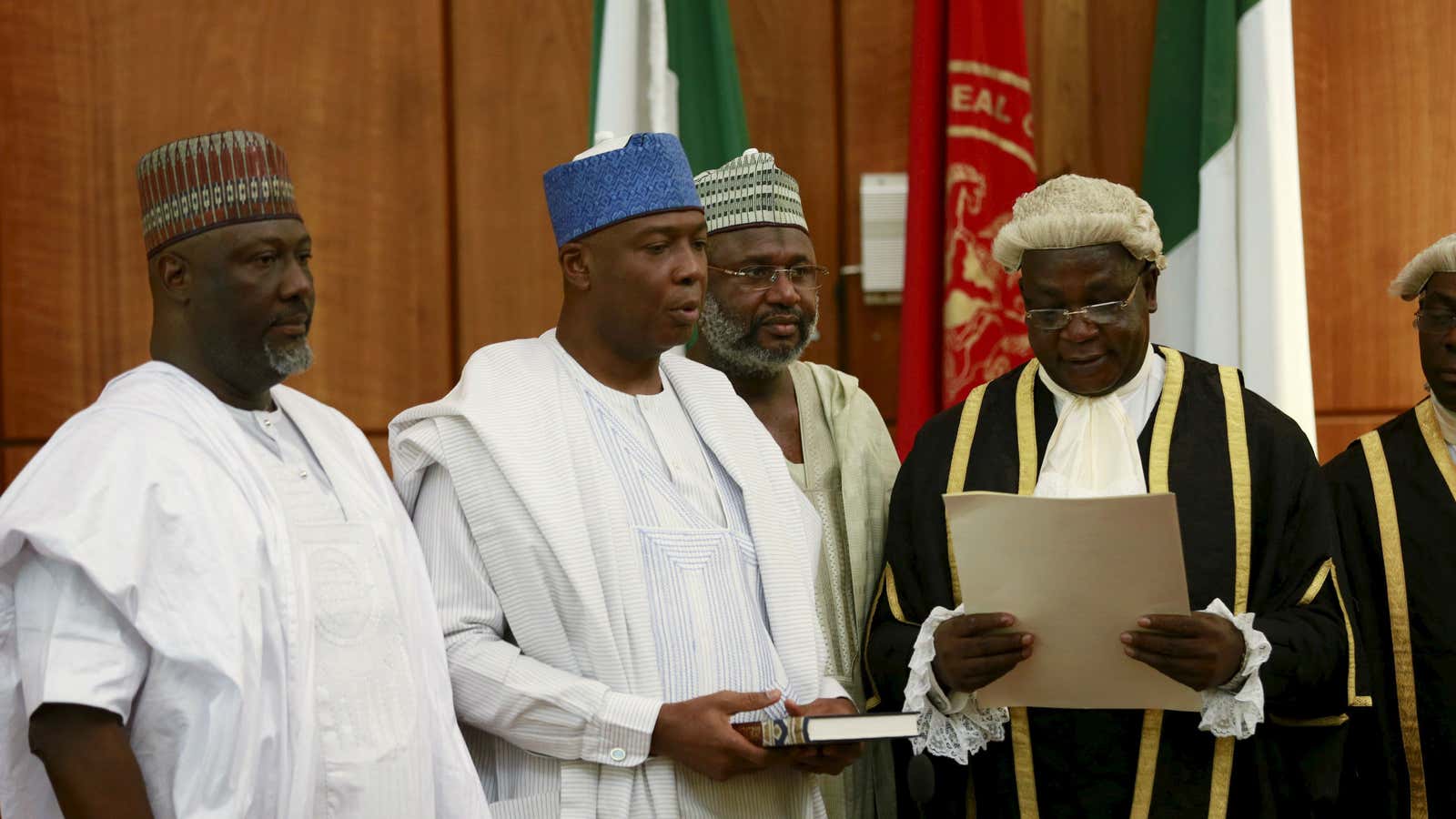Nigeria’s newly inaugurated National Assembly is set to receive a whopping 8.64 billion naira ($43 million) to spend on clothes.
Described as a wardrobe allowance, the amount will be split between both chambers of the National Assembly with the 109 members of the Senate receiving 21.5 million naira ($108,000) each while the 360 members of the House of Representatives, the lower chamber, will each receive 17.5 million naira.
Aside from a wardrobe allowance, the National Assembly will also receive other furniture and car loan allowances. The furniture allowance will see 107 senators receive 650 million naira while 358 House of Representatives members will receive total of 2 billion naira. The lawmakers can also access car loans with senators possibly provided with 867 million naira and House of Representatives members provided with 2.8 billion naira in car loans. While ordinary members of both chambers get these allowances, two principal officers from each chamber, the Senate President, the Speaker of the House and their deputies will have furniture provided by the Federal Government.
Before the inauguration of the new National Assembly, there had already been calls for transparency and reductions in funding for the lawmakers who rank among the world’s highest paid. Lawmakers in Nigeria earn around $160,000 annually based on current exchange rates- more than British lawmakers. While the lawmakers earn so much, regular Nigerians survive on the $90 monthly minimum wage.
In the United States, supplementary Congressional allowances make no provision for clothing and in the Britain, which was rocked by its own allowance scandal in 2009, clothing expenses are not listed among expenses members of parliament can claim for.
For Nigerians who went to polls and voted for a new government on the premise of its Change campaign, there is a real need to see significant evidence that, under President Buhari, excesses such as extravagant allowances are effectively cut out.
The campaign tagged #OpenNASS is led by BudgIT, a civil start-up and outraged Nigerians have taken to social media to vent. Nigerians can also draw inspiration from events in Kenya where citizens forced legislators to rethink increases in their pay with fierce protests in 2013.
The National Assembly is already infamous for its wage bill as well as a litany of allowances and it continues to receive immense funds that do not reflect the current financial reality of the nation. Still in its early days, the National Assembly will have to make a bold decision on its expenses and while it appears that newly elected Senate President Bukola Saraki may be in support of fiscal transparency, many feel he must begin to show real intent on pushing the agenda for a prudent and transparent federal legislature.
